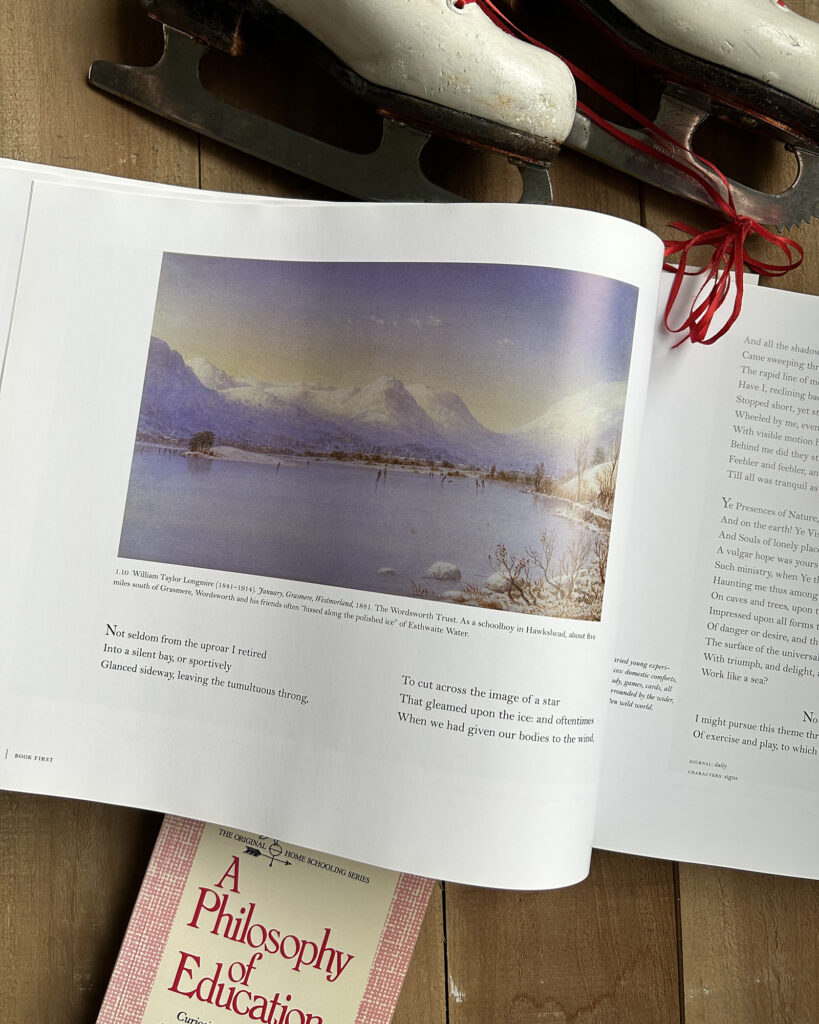CMP Review 2023-07-27
July 27, 2023

It has been said that William Wordsworth’s The Prelude is “one of the greatest long poems in English or in any language.” It is said even to rival Paradise Lost as “the most widely read long poem in English.” I personally am enjoying my own first careful read through this celebrated and monumental work.
The poet himself described The Prelude as “the long poem on my own education.” The early pages describe an education conducted not by parent or teacher but by nature. Whether floating on a lake in boats or gliding on a lake in skates, the poet recalls how his encounters with the outdoors gradually formed his heart and his soul.
Charlotte Mason did not read The Prelude as a critic or as a connoisseur. She read it as a seeker of truth. She fundamentally believed the insights it contained. This became clear to me when I read in context the words quoted in her own 12th principle. “Education is the Science of Relations” will forever be linked to the poet’s words about “those first-born affinities that fit our new existence to existing things.”
The epic poem did not receive its name until after Wordsworth’s death. One might think it was the “prelude to the poet’s life,” but it was not. It was the prelude to a grand philosophical work that Wordsworth imagined but never completed. It is a prelude without a postlude, a prelude without a philosophy.
Or perhaps it is a prelude to a philosophy after all. Not a prelude to another poem about education, but a prelude to an essay about education. An essay that shows us a science that brings first-born affinities to life.
@artmiddlekauff